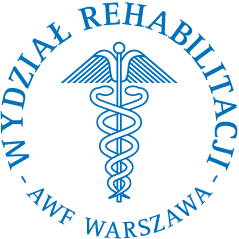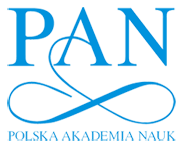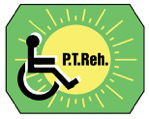


|
Current issue
Archive
Manuscripts accepted
About the journal
Editorial board
Reviewers
Abstracting and indexing
Contact
Instructions for authors
Publication charge
Ethical standards and procedures
Editorial System
Submit your Manuscript
|
2/2025
vol. 39 abstract:
Original article
Early motor and respiratory re-education in patients hospitalized for COVID-19
Nicola Manocchio
1
,
Concetta Ljoka
1
,
Lara Buttarelli
1
,
Laura Giordan
1
,
Andrea Sorbino
1
,
Calogero Foti
1
Adv Rehab. 2025. 39(2): 29-45.
Online publish date: 2025/04/08
View
full text
Get citation
ENW EndNote
BIB JabRef, Mendeley
RIS Papers, Reference Manager, RefWorks, Zotero
AMA
APA
Chicago
Harvard
MLA
Vancouver
Introduction:
Patients with SARS-CoV-2 infection often experience physical, functional, and psychological impairments, necessitating a tailored Individual Rehabilitation Project (IRP). Early motor and respiratory re-education can prevent hypomobility-related damage, restore lost functions, and ease the transition home post-hospitalization. The purpose of this study was to assess the effects of early IRP implementation on strength, dyspnoea, and patients' dependence in Activities of Daily Living (ADL) during the acute phase of COVID-19. Material and methods: A retrospective observational study was conducted on patients hospitalized for COVID-19 from March 2020 to July 2022. Patients underwent an initial PRM assessment (T0), a re-educational intervention (I), and a PRM reevaluation (T1) at discharge. The interventions included motor and respiratory re-education. The outcome measures comprised MBI, MRC and BDI and SpO2 values. Wilcoxon Signed-Rank tests were performed to compare variables at T0 and T1; Mann-Whitney independent-samples U test was conducted for subgroups analysis. Results: Of the 52 included patients (24 male; mean age 74.9±12.4 years) 32 (62%) received both motor and respiratory re-education. MRC (p < 0.001, r = 0.57); significant improvements in MBI (p < 0.001, r = 0.76), and BDI (p < 0.001, r = 0.70) were noted, but not SpO₂ (p = 0.065, r = 0.26). No significant differences were found in the subgroup analysis. Conclusions: An early, individualized rehabilitation approach combining motor and respiratory re-education significantly enhanced muscle strength, reduced dyspnea, and promoted independence in ADL in acutely hospitalized COVID-19 patients. Our findings confirm that early rehabilitation can play an important role in mitigating the functional decline associated with COVID-19. keywords:
COVID-19, SARS-CoV-2, rehabilitation, exercise therapy, activities of daily living |
    |